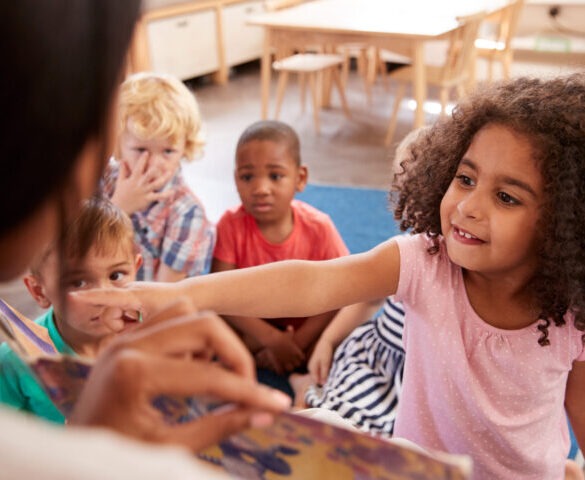IEL Resources
Tip Sheets
- Cooperation in the Preschool Classroom: Class Discussions
- Encouraging Child-to-Child Conversation
- Kids Who Care
- Real Work: Preschoolers Can Help
- Who’s the Leader?
- Work and Play Together
Tool Kit
Blog

This list gives educators and family members resources on how to teach the concepts of citizenship and leadership to young children.
Help young children gain a sense of citizenship to begin participating in democracy. This project out of Harvard explains how children are citizens in the here and now, with the right to express their opinions and participate in the civic and cultural life of their community. Resources such as videos, books, articles, and blogs are included on this website.
When you introduce young children to the concepts of democracy and citizenship, you are introducing them to a fundamental value of the American educational system. The values that the democratic process teaches are important to learn regardless of whether or not it is an election year. Educators and parents can explicitly name these values for young children and help them engage with what they are noticing.
An election year provides a great opportunity to talk with children about fairness and making decisions as a group. Families can vote on what movie to watch, book to read, or what to have for dinner.
This website provides projects, resources for teachers, and research on social studies education using an inclusive, inquiry-based pedagogy.
In her article, Georgina Ardalan explains how, by using documentation to listen closely to children, she facilitates a long-term project that expands their literacy skills and their ability to discuss, debate, and think critically. As a teacher researcher, Ardalan explores ideas, enlists colleagues to help her think more broadly, and envisions new possibilities for her community while offering her young students opportunities to do the same.
Emotional intelligence is a set of skills associated with monitoring one’s own and others’ emotions, and the ability to use emotions to guide one’s thinking and actions. Emotions impact attention, memory, and learning; ability to build relationships with others; and physical and mental health. Developing emotional intelligence enables young children to manage emotions effectively and be a better leader in the future.